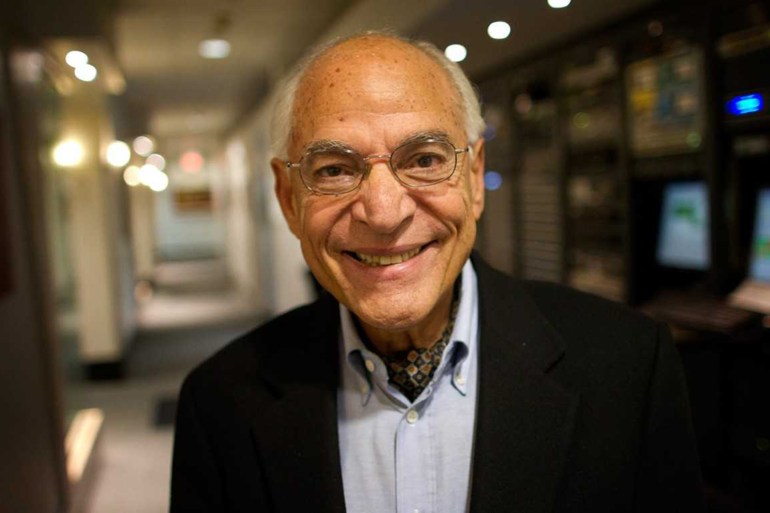CAIRO -
Months after the Egyptian media promoted a study talking about threats to collapse the Renaissance Dam, the famous Egyptian geologist Farouk El-Baz said that the dam's body is in good condition, describing what is being reported about the possibility of its collapse as "nonsense."
Al-Baz added - during a meeting from Washington with the journalist Amr Abdel Hamid on the "TeN" satellite channel (TeN) yesterday, Tuesday - that international companies and those contributing to building the dam, which spent millions, were only doing so while they were sure that their money was in place, and that Dam studies are sound.
Al-Baz said - according to what was reported by the Egyptian government newspaper Akhbar Al-Youm - that the world realized that the Egyptian state would not waste any part of its water share because of the Renaissance Dam, and this is the most important thing, as Egypt does not mind that Ethiopia generates the electricity it needs from the dam as long as there is no Impact on Egypt's share of water.
Farouk El-Baz’s statements contradict the uproar that the Egyptian media aroused last year about a study that they said was conducted with the participation of Egyptian and international specialists - including the Minister of Water Resources and Irrigation Mohamed Abdel Atti – which talked about the existence of a land subsidence at the site of the Grand Ethiopian Renaissance Dam, and a number of other factors that threaten the collapse of the dam. .
Famous Egyptian geologist Farouk El-Baz (communication sites)
A number of famous Egyptian media were interested in commenting on this study, and they were led by the trio, who is among the most close to the Egyptian regime in the recent period, Amr Adib, Ahmed Musa and Nashat Al-Dehi, as they warned at the time of its danger, and stressed the importance of accessing full information about the dam, from In order to protect Egypt and Sudan from any threat, they said.
Professor of Remote Sensing and Earth Systems Sciences at the American University of Champagne, Hisham Al-Askari, was a guest on the Egyptian satellite channels and explained how 109 images and scenes were analyzed, from December 2016 to July 2021, using radar ray technology, to conclude that there are evidence on the displacement and movement factors of different directions in different sections of the "main" concrete dam as well as the "auxiliary" aggregate dam;
Which portends the collapse of the dam and the subsequent devastating impact on the two downstream countries, he said.
Despite the media attention and what was said about the participation of the Egyptian Minister of Irrigation in preparing the study, Cairo did not issue any official statement or statement about the study, whether from the government, the Ministry of Irrigation or other concerned institutions.
For his part, the Egyptian Minister of Irrigation Mohamed Abdel-Aty said - in an exclusive interview with Al-Jazeera last September - that the Renaissance Dam suffers from technical problems that prevented the completion of the second filling of the dam's lake.
Professor of geology and water resources at Cairo University, Abbas Sharaki, joined the list of commentators on this study, saying that the collapse of the Renaissance Dam would be a "ruin for Sudan", because it would cause a flood and the annihilation of 20 million people living on the banks of the Blue Nile.
Sharaki explained - in a telephone interview with the journalist Amr Adib on his program broadcast on the Saudi-owned MBC Egypt channel - that the impact of the collapse of the Renaissance Dam on Egypt depends on the reservoir of the High Dam, if the High Dam lake is filled, there will be a problem Large, because the Toshka spillway in addition to the gates of the High Dam will not be able to drain the water, but if the lake is low, it may absorb the water coming from Ethiopia.
The Egyptian media also hosted the engineer Ahmed El-Shennawy, who described him as an international expert in water resources and dam designs, as he said that the Renaissance Dam will collapse once it is operational.
Over the past years, Egypt has continued to criticize the dam, which threatens its historical share of the waters of the Nile River, while Ethiopia continues to build and operate it without responding to the demands of Egypt and Sudan to conclude a binding agreement in this regard.

